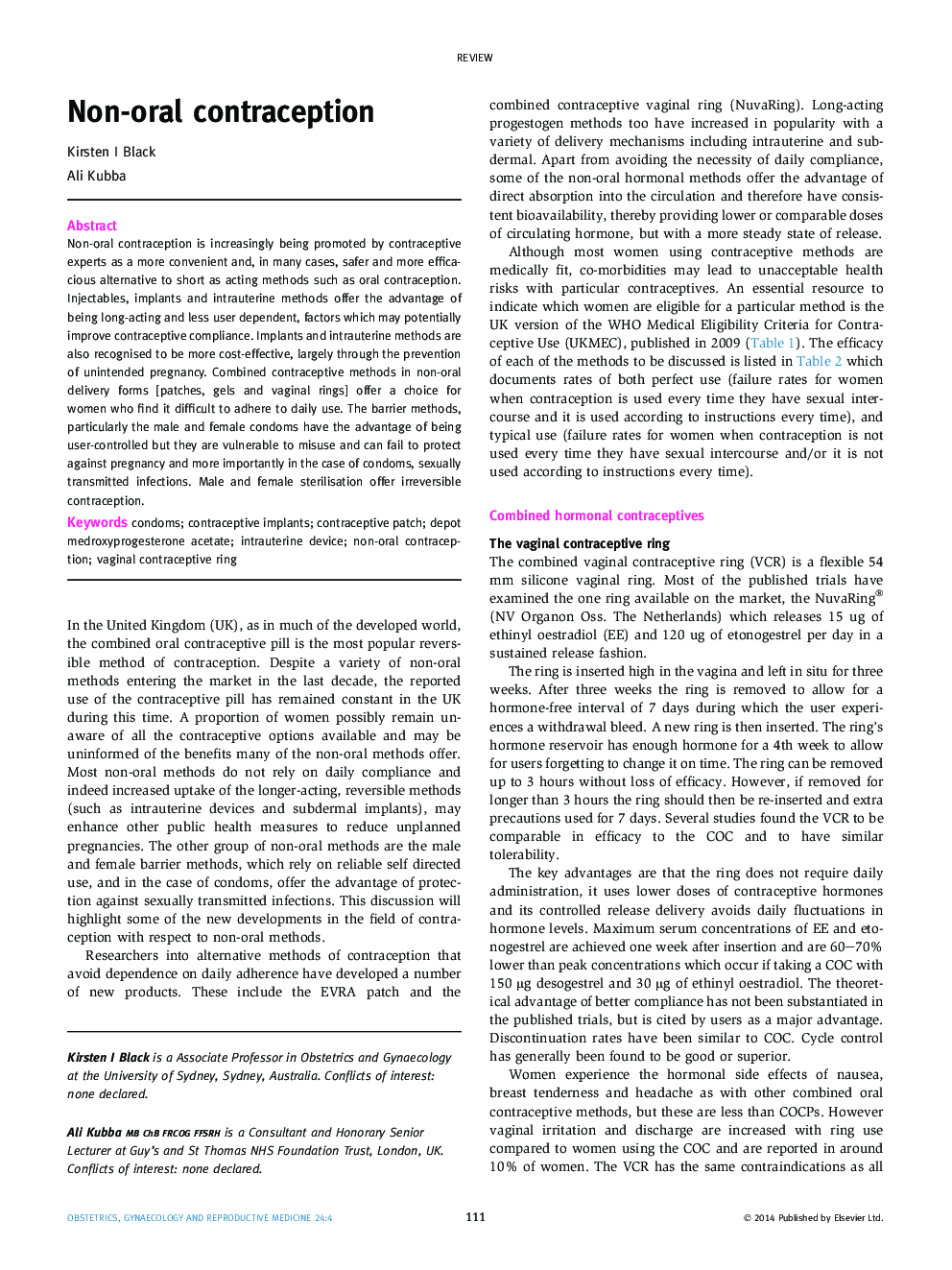| Article ID | Journal | Published Year | Pages | File Type |
|---|---|---|---|---|
| 3966805 | Obstetrics, Gynaecology & Reproductive Medicine | 2014 | 6 Pages |
Non-oral contraception is increasingly being promoted by contraceptive experts as a more convenient and, in many cases, safer and more efficacious alternative to short as acting methods such as oral contraception. Injectables, implants and intrauterine methods offer the advantage of being long-acting and less user dependent, factors which may potentially improve contraceptive compliance. Implants and intrauterine methods are also recognised to be more cost-effective, largely through the prevention of unintended pregnancy. Combined contraceptive methods in non-oral delivery forms [patches, gels and vaginal rings] offer a choice for women who find it difficult to adhere to daily use. The barrier methods, particularly the male and female condoms have the advantage of being user-controlled but they are vulnerable to misuse and can fail to protect against pregnancy and more importantly in the case of condoms, sexually transmitted infections. Male and female sterilisation offer irreversible contraception.
